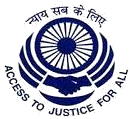-
What is Lok Adalat?
In light of Section 19 of the Legal Services Authorities Act, 1987, the process for the organisation of Lok Adalat is as follows:
-
Organisation of Lok Adalats:
- Every State Authority, District Authority, Supreme Court Legal Services Committee, High Court Legal Services Committee, or Taluk Legal Services Committee may organize Lok Adalats at various intervals and locations.
- Every Lok Adalat shall consist of:
- Serving or retired judicial officers
- Other persons as specified by the appropriate authority
- The qualifications and experience required for the members shall be prescribed by the respective governments in consultation with judicial authorities.
- A Lok Adalat has jurisdiction to settle:
- Pending cases in courts
- Disputes within its jurisdiction but not yet brought before any court
Note: It does not have jurisdiction over non-compoundable criminal offences.
-
Cognizance of Cases by Lok Adalats:
- A case can be referred to a Lok Adalat if:
- Both parties agree
- One party makes an application to the court
- The court finds it appropriate for settlement
- The Lok Adalat shall attempt to settle the case with fairness and justice.
- If no settlement is reached, the case shall be returned to the court.
-
Award of Lok Adalat:
- An award by Lok Adalat is considered a decree of a civil court.
- Any court fee paid shall be refunded if a settlement is reached.
- The award is final and binding, and no appeal can be made against it.
-
Powers of Lok Adalat:
The Lok Adalat has similar powers to a civil court in matters such as:
- Summoning and examining witnesses
- Requiring document production
- Receiving evidence via affidavits
- Requesting public records
- Other prescribed judicial matters
National Legal Services Authority (Lok Adalat) Regulations, 2009 (197 KB)



